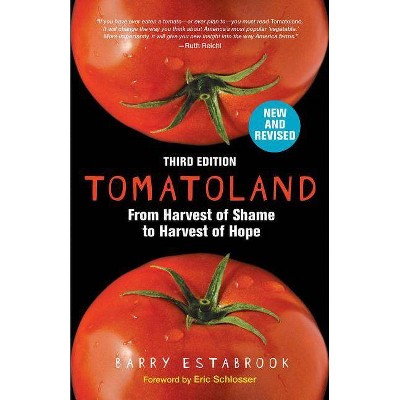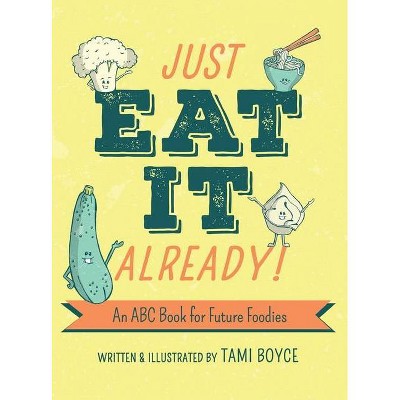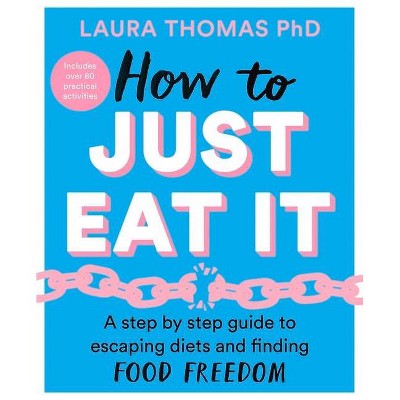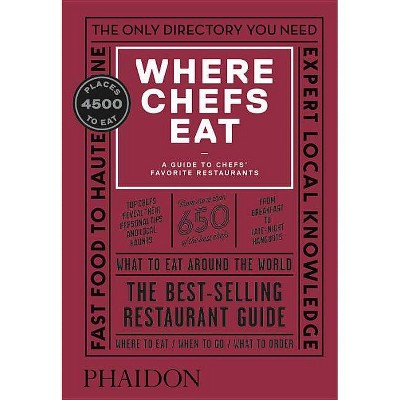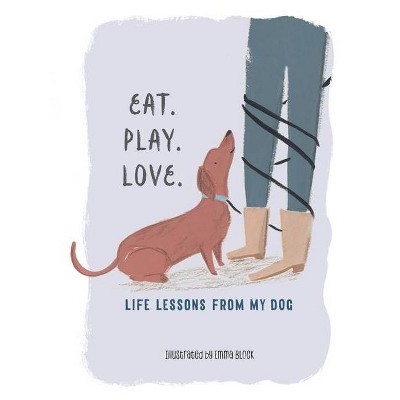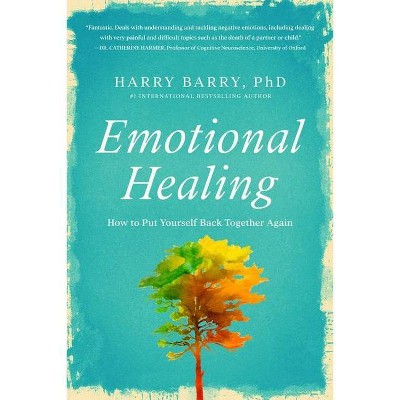Just Eat - by Barry Estabrook (Hardcover)
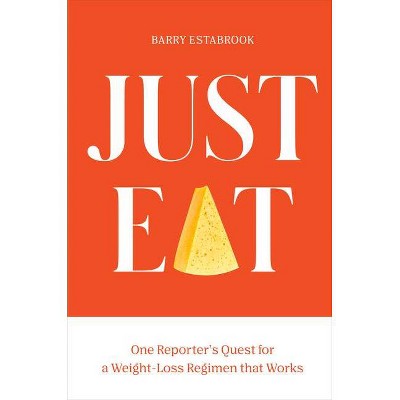
Similar Products
Products of same category from the store
AllProduct info
<p/><br></br><p><b> About the Book </b></p></br></br>"Investigative journalist Barry Estabrook was often on the receiving end of his doctor's scowl. Realizing he had two options--take more medication or lose weight--Estabrook chose the latter, but was paralyzed by the options. Which diet would keep the weight off? What program could he maintain over time? What diet works best--or even at all? Over the course of three years, Estabrook tried the regimens behind the most popular diets of the past forty years--from paleo, keto, gluten-free, and veganism to the Master Cleanse, Whole30, Atkins, Weight Watchers--examining the people, claims, and science behind the fads, all while recording his mental and physical experience of following each one. Along the way, he discovered that all the branded programs are derived from just three diets. There are effective, scientifically valid takeaways to be cherry-picked . . . and the rest is just marketing. Perhaps most alarming, Estabrook uncovered how short-term weight loss can do long-term health damage that may go undetected for years. Estabrook contextualizes his reporting with an analysis of our culture's bizarre dieting history, dating back to the late 1800s, to create a thorough--and thoroughly entertaining--look at what specific diets do to our bodies, why some are more effective than others, and why our relationship with food is so fraught."--Provided by publisher.<p/><br></br><p><b> Book Synopsis </b></p></br></br><b>The <i>New York Times </i>bestselling author of <i>Tomatoland </i>test drives the most popular diets of our time, investigating the diet gurus, contradictory advice, and science behind the programs to reveal how we should--and shouldn't--be dieting.</b> <p/><b>"Essential reading . . . This will completely change your ideas about what you should be eating."--Ruth Reichl, author of <i>Save Me the Plums</i></b> <p/>Investigative journalist Barry Estabrook was often on the receiving end of his doctor's scowl. Realizing he had two options--take more medication or lose weight--Estabrook chose the latter, but was paralyzed by the options. Which diet would keep the weight off? What program could he maintain over time? What diet works best--or even at all? <p/>Over the course of three years, Estabrook tried the regimens behind the most popular diets of the past forty years--from paleo, keto, gluten-free, and veganism to the Master Cleanse, Whole30, Atkins, Weight Watchers--examining the people, claims, and science behind the fads, all while recording his mental and physical experience of following each one. Along the way, he discovered that all the branded programs are derived from just three diets. There <i>are</i> effective, scientifically valid takeaways to be cherry-picked . . . and the rest is just marketing. Perhaps most alarming, Estabrook uncovered how short-term weight loss can do long-term health damage that may go undetected for years. Estabrook contextualizes his reporting with an analysis of our culture's bizarre dieting history, dating back to the late 1800s, to create a thorough--and thoroughly entertaining--look at what specific diets do to our bodies, why some are more effective than others, and why our relationship with food is so fraught. <p/>Estabrook's account is a relatable, pragmatic look into the ways we try to improve our health through dieting, revealing the answer may be to just eat.<p/><br></br><p><b> Review Quotes </b></p></br></br><br>"The problem with many diets, as Barry Estabrook points out in his excellent new book, <i>Just Eat</i>, is that they 'play down or completely ignore the important, sensual role' of food."<b>--Hannah Goldfield, <br><i>The New Yorker</i></b> <p/> " . . . deeply reported, page-turning . . ."<b>--Matt Rodbard, <i>Taste</i></b> <p/>"Fascinating . . . beautifully written . . . deeply researched . . . just so good."<b>--Dorie Greenspan</b> <p/>". . . an enlightening first-person account focused on the diets that Americans attempt to follow and the cultures that seem to have found a healthy relationship with food."<b>--Matthew Rees, <i>Wall Street Journal<br></i></b><br>"<i>Just Eat</i> is unlike any diet book I've ever read. It is exhaustively researched, yet is an accessible, witty--sometimes laugh-out-loud--read that shines a light on the real reasons it's so hard to lose weight and what the science shows can<i> actually </i>work."<b>--Shaun Dreisbach, nutrition and features editor of <i>EatingWell</i><br> </b><br>"Estabrook explores and simplifies a confusing diet landscape."<b>--Philip Ades, MD, Endowed Professor of Cardiovascular Prevention, The Robert Larner College of Medicine at the University of Vermont<br> </b><br>"This will completely change your ideas about what you should be eating and whether you should even think about trying to lose weight."<b>--Tommy Tomlinson, author of <i>The Elephant in the Room</i><br></b><br>"Estabrook packs a lot of highly useful information into a narrative that's also enjoyably snarky. A lively tour of paunch and pantry that proves the adage that less is more."<b><i>--Kirkus Reviews</i></b><br><p/><br></br><p><b> About the Author </b></p></br></br><b>Barry Estabrook</b> is the author of <i>Pig Tales: An Omnivore's Quest to Sustainable Meat </i>and the <i>New York Times</i> bestselling <i>Tomatoland: How Modern Industrial Agriculture Destroyed Our Most Alluring Fruit, </i>which was awarded a Farmworker Justice Award and inspired the documentary <i>Food Chains. </i>Estabrook is a former contributing editor at <i>Gourmet</i>, where his coverage in the labor abuses of tomato farming won a James Beard Award. He has written investigative articles on food, nutrition, and agriculture for the <i>Washington Post, New York Times, </i>and <i>The Atlantic</i> and his work has been included in the Best American Food Writing anthologies. He writes from his plot in Vermont where he gardens, tends a dozen hens, taps maple trees, and brews hard cider from his own apples.
Price History
Cheapest price in the interval: 15.29 on October 28, 2021
Most expensive price in the interval: 15.29 on November 6, 2021
Price Archive shows prices from various stores, lets you see history and find the cheapest. There is no actual sale on the website. For all support, inquiry and suggestion messagescommunication@pricearchive.us
